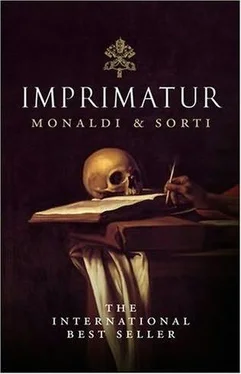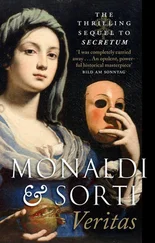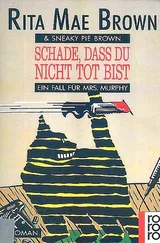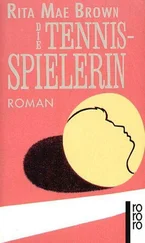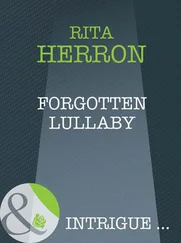Rita Monaldi - Imprimatur
Здесь есть возможность читать онлайн «Rita Monaldi - Imprimatur» весь текст электронной книги совершенно бесплатно (целиком полную версию без сокращений). В некоторых случаях можно слушать аудио, скачать через торрент в формате fb2 и присутствует краткое содержание. Жанр: Исторический детектив, на английском языке. Описание произведения, (предисловие) а так же отзывы посетителей доступны на портале библиотеки ЛибКат.
- Название:Imprimatur
- Автор:
- Жанр:
- Год:неизвестен
- ISBN:нет данных
- Рейтинг книги:5 / 5. Голосов: 1
-
Избранное:Добавить в избранное
- Отзывы:
-
Ваша оценка:
- 100
- 1
- 2
- 3
- 4
- 5
Imprimatur: краткое содержание, описание и аннотация
Предлагаем к чтению аннотацию, описание, краткое содержание или предисловие (зависит от того, что написал сам автор книги «Imprimatur»). Если вы не нашли необходимую информацию о книге — напишите в комментариях, мы постараемся отыскать её.
Imprimatur — читать онлайн бесплатно полную книгу (весь текст) целиком
Ниже представлен текст книги, разбитый по страницам. Система сохранения места последней прочитанной страницы, позволяет с удобством читать онлайн бесплатно книгу «Imprimatur», без необходимости каждый раз заново искать на чём Вы остановились. Поставьте закладку, и сможете в любой момент перейти на страницу, на которой закончили чтение.
Интервал:
Закладка:
Oft have I returned in vain to the Via dell'Orso, to ask the new occupants of the house where the Donzello stood (now there are only apartments for rent) whether any letters have arrived for me from Paris, or whether anyone has ever asked after the one-time prentice. Every time, as I feared, my hopes have been dashed.
Time has helped me to understand. Only today have I understood that in reality Abbot Melani never intended to betray Fouquet. It is true that Atto gave the Sun King the letters which he had stolen from Colbert, from which the Superintendent was found to be hiding in Rome. However, before then, the King had already begun to show clemency for Fouquet; he had alleviated the conditions of his imprisonment and by now there was even hope that he might be freed. Everyone believed that his liberation was being delayed by Colbert as usual: so why should it not have been a good idea to bring the Coluber 's letters to the King? Melani could certainly not foresee that the King's mind would, as soon as he laid eyes on the letters stolen by Atto from Colbert's study, move as swiftly as lightning to a deadly conclusion: Fouquet was in Rome with the secretum pestis, and perhaps he would give it to the Pope, who was sustaining the defenders of Vienna…
Louis XIV could not permit his plans to fail at precisely that moment, when his pact with the Turks was on the point of yielding fruit. He will have coldly dismissed Atto. He will have accorded himself time for reflection. He will have recalled him a little later and told him who knows what deceitful tale. Whatever that may have been, I am sure of the conclusion of that meeting: Atto was sent to accomplish an extreme and tragic act of fidelity to the Crown.
Today, all this no longer seems horrible to me. I look back almost with tenderness at the stratagem of robbing those little pearls off me in order to involve me in his investigations. And I wish I could turn back to that last day when I saw Atto Melani: Signor Abbot, please stop, I should like to tell you…
The chance was lost and now that is impossible. We were separated, then and forever, by my boyish candour, my disappointed enthusiasm and my impatience. Now, I know that it was wrong to sacrifice friendship on the altar of purity, confidence on that of reason, sentiment on that of sincerity.
One cannot befriend a spy without bidding farewell to the truth.
All the prophecies came true. On the first days of the quarantine, I dreamed that Atto gave me a ring and that Devize played the trumpet. Well, in my Cloridia's book on the interpretation of dreams, I have read that the ring is a symbol of the good conjoined with difficulty, while the trumpet signifies occult knowledge, such as the secret of the pestilence.
In my dream, I had seen Pellegrino rise from the grave: a presage of travails and harm, which did indeed befall us all. In those dream fantasies I saw salt scattered, symbolising assassination (the death of Fouquet); and then, a guitar, indicative of melancholy and labour without reputation (I and Cloridia, unknown and neglected on our little plot). Only one symbol had been favourable, and Cloridia knew that well: the cat, which signals lust.
Stilone Priaso's astrological almanack had also predicted all that befell us: not only the collapse of the inn, but also the imprisonment of a group of gentlemen (the quarantine at the Donzello), a city besieged (Vienna), malignant fevers and venomous distempers (which struck more than one guest), the death of a sovereign (Maria Teresa), and the journeys of ambassadors (bringing news of the victory in Vienna). Only one vaticination had not come true; or rather, it had been overtaken by an even greater force: the "Barricades Mysterieuses" had prevented the death of "certain enclosed noblemen", as foreseen by the almanack.
All this has helped me to come to a decision, or rather, to free myself of an old and unhealthy desire.
No longer do I wish to become a gazetteer. Nor is this only because of the doubt (incompatible with the Faith) that our destinies may be governed by the caprices of the stars. It was something else that extinguished that old ardour in me.
In the gazettes which, since the adventure of the Donzello, I have had occasion to read in great numbers, I have found nothing of what Atto taught me. I am not speaking of facts: I already knew that the real secrets of sovereigns and states are never to be found in the broadsheets which are sold in our city squares. What is most lacking from the gazetteers' accounts is the courage to think matters through to their conclusion, a thirst for knowledge, and bold and honest testing of the intellect. It is not that newspapers are quite useless: they are simply not made for searchers after the truth.
I could certainly, even with the poor abilities at my disposal, have changed that state of affairs; but whoever dared divulge the mysteries of Fouquet and Kircher, Maria Teresa and Louis XIV William of Orange and Innocent XI, would at once be arrested, bound in chains and thrown forever into the prison for the insane.
What Atto said is true: knowing the truth is of no use to those who write gazettes. On the contrary, it is the greatest of obstacles.
Silence is the only known salvation.
What no one can restore to me and which I most sorely miss are not, however, words, but sounds. Of the "Barricades Mysterieuses" (alas, I could keep no copy) there remains to me only a faint and patchy memory, some sixteen years old.
I have made of it a sort of solitary divertissement, a joyous contest with my own memory. How was it, how did that passage sound, that chord, that bold modulation?
When the dog days of summer dry the head and the knees, I sit down under the oak that shades our modest cottage, in Pompeo Dulcibeni's favourite seat. Then I close my eyes and gently hum Devize's rondeau, once, twice, and then again, in the sure knowledge that my every attempt will be more faded, more uncertain, more distant from the truth.
A few months ago, I sent a letter to Atto. Not having his address in Paris, I sent it to Versailles, in the hope that someone would forward it to him. I am sure that everyone at court knows the famous castrato abbot, counsellor to the Most Christian King.
I confided to him my deep pain at having taken my leave without first expressing to him my gratitude and devotion. I offered him my services, begging him to do me the favour of accepting them and calling myself his most faithful servant. Last of all, I mentioned to him that I had written these memoirs, based upon my diary of those days, of which Atto will not even have suspected the existence.
Yet he has not so far replied to me. Thus, an atrocious suspicion has in recent times begun to disturb my mind.
What will Atto have reported to the Most Christian King on his return to Paris? Will he have succeeded in concealing all those royal secrets which he had discovered? Or will he have lowered his guard, browbeaten by so many questions, thus enabling the King to perceive that he was privy to too many infamies?
Thus, I sometimes imagine a nocturnal ambush in some obscure alleyway, a stifled cry, the footsteps of fleeing ruffians and Atto's body lying in blood and mire…
I shall not give up. Struggling with my fantasies, I continue to hope. And as I await the post from Paris, I sometimes quietly sing a verse or two of his old master, Le Seigneur Luigi:
Speranza, al tuo pallore so che non speripiu.
E pur non lasci tu di lusingarmi il core…
Hope, from your pallor
I know you hope no more.
And yet you do not cease
From flattering my heart…
Addendum
Dear Alessio,
You will at last have completed your reading of my two old friends' opus. It will now be up to you to take the final step that will place it in the hands of the Holy Father. While consigning these lines to paper, I pray that the Holy Spirit may inspire your reading and the decision to which it gives rise.
Читать дальшеИнтервал:
Закладка:
Похожие книги на «Imprimatur»
Представляем Вашему вниманию похожие книги на «Imprimatur» списком для выбора. Мы отобрали схожую по названию и смыслу литературу в надежде предоставить читателям больше вариантов отыскать новые, интересные, ещё непрочитанные произведения.
Обсуждение, отзывы о книге «Imprimatur» и просто собственные мнения читателей. Оставьте ваши комментарии, напишите, что Вы думаете о произведении, его смысле или главных героях. Укажите что конкретно понравилось, а что нет, и почему Вы так считаете.
